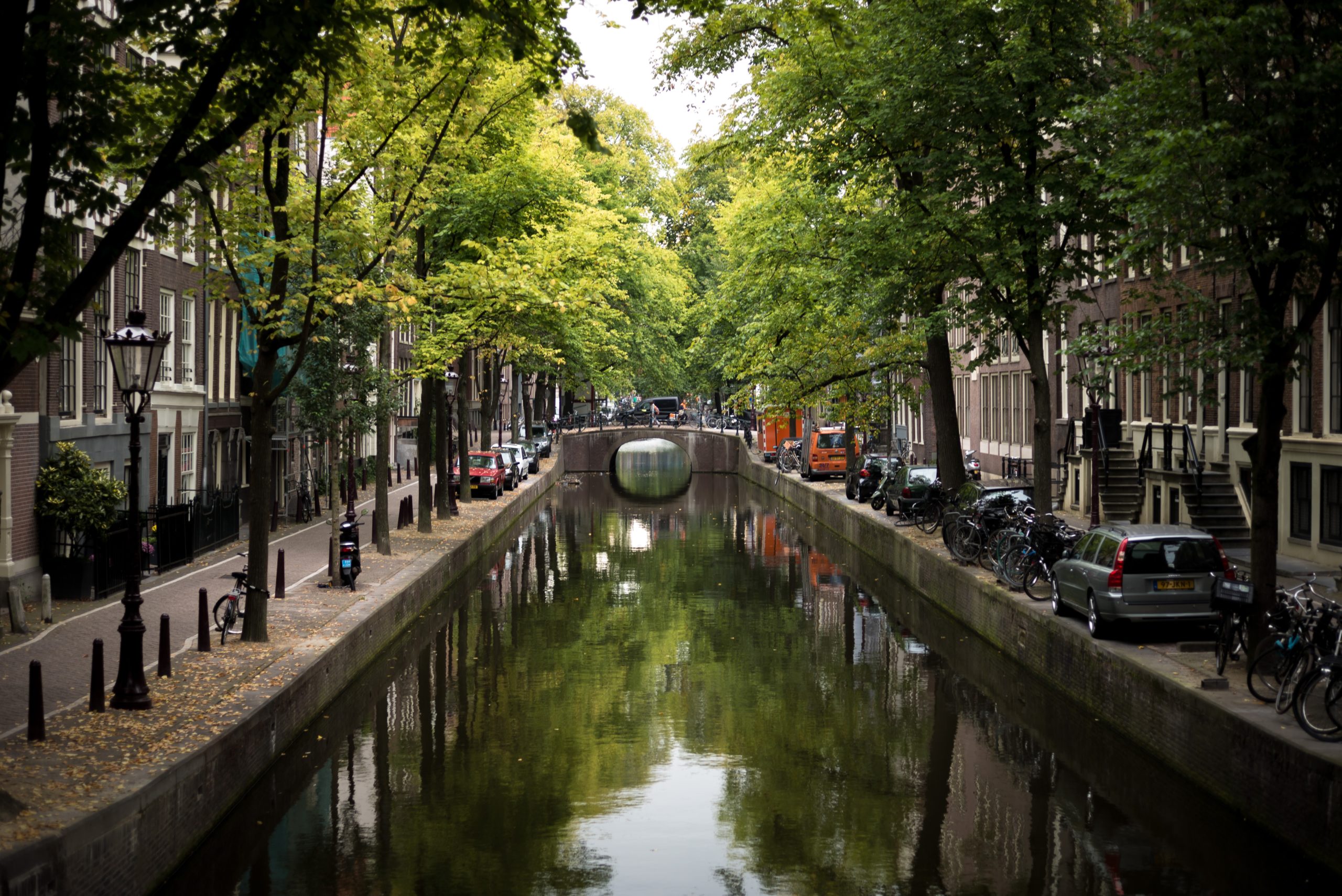Top 5 Financial Districts To Live And Work - Amsterdam
This is part 1 of a 5-part series where we take a close look at the top 5 financial districts in which to live and work – starting with Amsterdam. You can find more information on relocating in our Guide to Relocation and Country Information here.
“What’s special about Amsterdam is that the city is able to connect worlds that are not otherwise connected”, Marcel Wanders.

“Increased flows of business to Amsterdam make the point that we face stiff competition as a financial centre not just from the US and Asia, but from elsewhere in Europe”, Jonathan Hill, former EU commissioner.
Amsterdam is one of the most intriguing, beguiling, famous and beautiful of metropolitan areas. It is an ancient city aptly named “The Venice of the North”, and its unique position as both Dutch capital, port and cultural and financial centre of Europe has meant it’s been both a centre for commerce and a continual magnet for businesses, talent, culture, trade and wealth for many hundreds of years.
It has also been in the news very recently as the primary beneficiary of a wave of capital, share trading and swaps flowing back into the continent as a result of Brexit. Its newly crowned position as “European hub for blank-cheque companies” emulates its historical position as the site of the world’s first joint stock company, as highlighted in this FT piece.
As one of the primary financial centres for the EU, Amsterdam is an even more attractive and desirable place to live and work, so we’ve highlighted a simple, quick-fire list of what to expect were you to relocate there.
Geography and travel
- Amsterdam, while not fully central to the EU, is incredibly well connected, with ample cross-continent infrastructural travelling options and a variety of well-connected terminals to get to and from every EU state. Average flight costs from Berlin cost approx. £70, £80 from Paris and £70 from Vienna.
- It is also strategically linked to many EU centres of business by high-speed rail: Brussels is 2hrs by rail, Frankfurt is 3.45hrs and Paris is 3.15hrs.
Culture
- Amsterdam is a cultural powerhouse. As I Amsterdam puts it, Art runs in Netherland’s DNA: Rijksmuseum, Rembrandt House, the Van Gogh Museum and the Stedelijk Museum are some of the world’s most well visited places of art celebration.
- The city is also famed for its concerts (see the Royal Concertgebouw) and theatre (see the Holland festival, or the Amsterdam Opera). It also hosts the International Documentary Film Festival and a variety of other cultural meets, festivals and shows.
- The financial and business services sector are represented mainly in the Zuidas Business district (7 min train journey from Schiphol Airport), Amstel Business Park, Y Riverbanks and the City Centre.
- Amsterdam is renowned for its night-time economy and fantastic array of bars, restaurants and clubs, and from its museums to shops to canal-side socialising; it’s a peculiarly friendly and unique part of Amsterdam’s vibrant cultural living space.
- Around 19% of the population of Holland are foreign nationals, creating a country that’s multi-cultural and metropolitan in outlook, and rated the number 5 safest city in the world.
Education
- Amsterdam has long been regarded as a supportive city for international and cross-EU families and children to learn. There are a number of international schools (broken into two designations: private and part-government funded) and a range of higher education establishments such as the Amsterdam Institute of Finance and the Tinbergen Institute.
Property prices and living
- 3 million people live in Amsterdam, and despite it being relatively expensive to live in, it is still on average 22% lower in price to rent a property than for example London
- Amsterdam has a unique housing system where most of the housing is managed through semi-public housing corporations, which is virtually locked to non-Dutch residents. The private rental market accounts for 5-10% of the housing stock, and a 2-3 bedroom apartment or house could cost you anything between €2,000 to €5,000 a month.
Business sector and financial cityscape
- The Netherlands is a participating Member State of the Banking Union and as such all institutions are under the responsibility of the ECB. The Dutch financial authorities have developed what is called the Innovation Hub to “support market operators that seek to market innovative financial services or products but are unsure about the rules… the Hub aims to create room for innovation in the financial sector”.
- The Netherlands has an enviable special tax regime for expatriates, called the “30% ruling” which allows an employer to grant an employee a tax-free allowance for up to a maximum of 30% of their remuneration as an (untaxed) reimbursement of the extra costs of their stay. This includes flexible forms of income such as bonus payments and stock options.
You can learn more about Amsterdam’s unique business landscape by visiting IAmsterdam.com here.
Similar posts:
Relocating for a Job Post-pandemic – Is It worth It? Relocation And Country Information,
Photo by Boudewijn “Bo” Boer on Unsplash
Job Seekers
On the hunt for your next role? Upload your CV below and we’ll be in touch to discuss your requirements.
Employers
For employers seeking the right skills and cultural fit for your business, send us your vacancy to find out more about how we can help.
Submit CV Send Us Your VacancySearch Jobs
Popular this week
- What Qualifications And Skills Are Needed To Be An Accountant?
- How Does Industry 4.0 Differ From The Previous Generation?
- Agile For Accountants: Six Steps To Provide Necessary Tools And Relevant Processes
- What Are The Main Differences Between ACA and ACCA?
- What Are The Top Five Financial Accounting Facts For #AccountantsDay